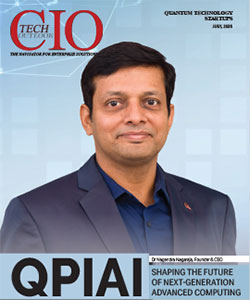Denmark Plans World's Most Powerful Quantum Computer, Magne
CIOTech Outlook Team | Friday, 18 July 2025, 07:06 IST

- Novo Nordisk Foundation and EIFO will invest €80M in a powerful quantum computer.
- Atom Computing builds the hardware; Microsoft provides software.
- Magne will launch with 50 logical qubits to advance drug and materials research.
The state-owned Export and Investment Fund (EIFO) in Denmark and the Novo Nordisk Foundation are together investing €80 million ($92.93 million) in building the world’s strongest quantum computer. Dubbed QuNorth, the aim is to create breakthroughs in drug discovery, materials science, and chemistry challenges that simply cannot be tackled using current computing power given the complexity of the molecular combinations.
Quantum computing is poised to complete multiplication where classical computing cannot, even in cases where it could take millions of years. The new quantum computer Magne, meaningfully appropriate since Magne, the son of Thor, is quite strong, and that comments on the computational power of the system.
Studies and reports said that the construction of Magne starts this fall with planned completion by the end of next year. Atom Computing, a U.S.-based quantum hardware maker, will produce the hardware, while Microsoft, the company with Denmark's largest quantum research lab, will create the software. Jason Zander, Executive Vice President at Microsoft, told the audience that the machine will have an initial run with 50 logical qubits.
Also Read: Nvidia to Resume Sales of Key AI Chip to China Despite Curbs
A qubit (quantum bit) is the smallest unit of quantum information, while a logical qubit is a more stable, error-corrected version of a qubit made from multiple physical qubits. Just in November 2023, Microsoft and Atom Computing recorded a 24-logical-qubit achievement. Magne's goal is to be better than double that number; this would be a significant advancement in practical quantum computing applications.
Jason Zander stated, "When we get to about 50 logical qubits, that's when we start hitting true quantum advantage".
He added, "I get to the point where I can run something on a quantum computer that I could not run on a classic computer. When the machine gets up to 100 (logical qubits), we can start doing science problems, get up to a couple 100s, we can start doing some chemistry and starting to answer things, and then when all the way up to 1,000, now you are solving everything".




